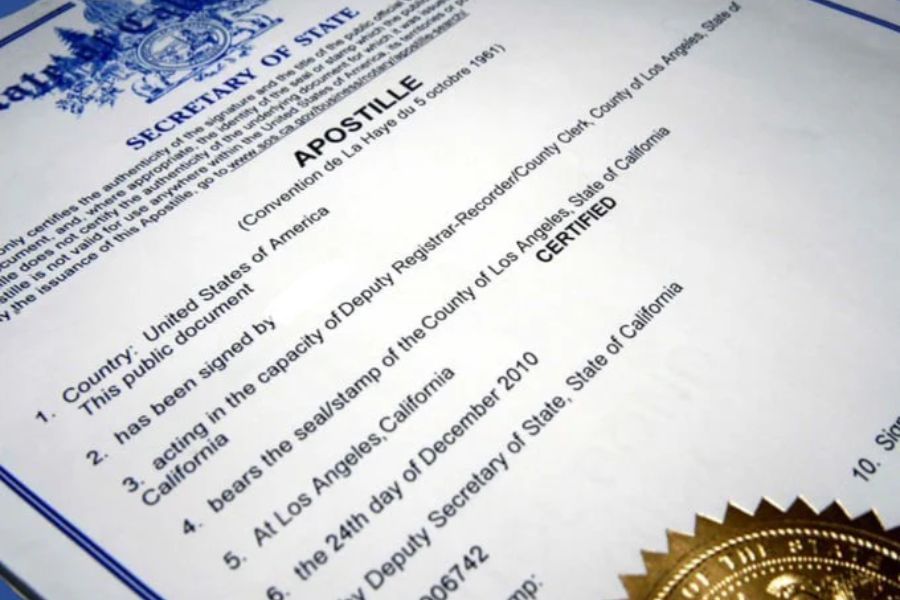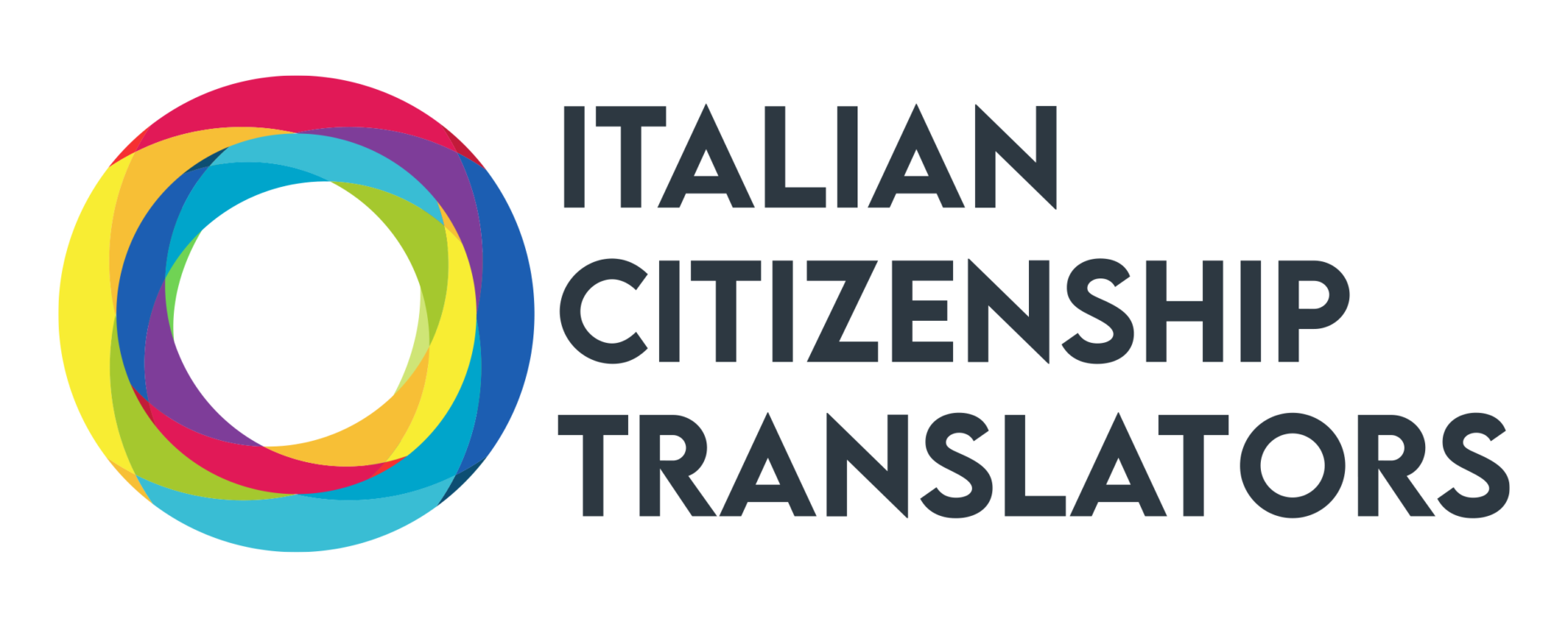
Do Apostilles Need to Be Translated When Applying for Italian Citizenship?
Italy is a destination rich in history, culture, and natural beauty. Italians emigrated around the world in search of a better life, and now their descendants are interested in reclaiming Italian citizenship. Yet the path to obtaining Italian citizenship can be complex. The bureaucracy can be overwhelming, especially when it comes to translating documents in a foreign language to Italian. The term Apostille appears frequently in this context. What is an Apostille, and why is it important in the process of acquiring Italian citizenship? This article will explain more about what an Apostille is and its part and importance in the process of obtaining Italian citizenship by descent.
Understanding Apostilles
It was The Hague Conference on Private International Law in 1965 that devised the Apostille Convention/Treaty. And in this convention was outlined how a document issued and signed in one signatory country can be certified for the purpose of being used for an official purpose in another country. An Apostille shares similarities with a notarization, but the main difference is that an Apostille is recognized internationally, and so its remit is far reaching.
The Apostille is the certification of a document that is mandatory when submitting vital records that are issued outside of Italy for the purpose of acquiring Italian citizenship. As discussed, an Apostille is a critical component in international document verification, and is essentially a certificate issued by a designated authority in a country that is part of the Hague Convention. Italy is part of such a convention, and this is why in most cases an Apostille for the vital records is required. An Apostilled certificate confirms the authenticity and legality of a document’s signature, seal, or stamp, making the document valid for use in another member country without further legalization.
When an Apostille is issued in one country, it validates the record, and this removes the necessity to then have the document recertified in another country. It is also useful to note that all records that are authenticated with an Apostille will need to be accompanied by a translation into Italian, which this article will discuss in more detail further on.
Vital records
Apostilles are required for legal documents that are necessary as part of your citizenship application. These documents are known as vital records, for example birth certificates and marriage certificates.
Another important point is that you will need to retrieve your Italian ancestor’s vital records from Italy. These are usually found in the registry office (“Ufficio di Stato Civile”) in the town hall of the Italian municipality in which the registration took place. In some town halls the registry office might be known as “Ufficio Anagrafe”; the “Ufficio di Stato Civile”, or “Ufficio Anagrafe”. These offices will be able to provide you with your ancestor’s birth certificate, but you must justify why the record is needed and present all the pertinent information (full name, date of birth, and his or her parents’ names) relating to your ancestor.
A final note to mention is that your Italian ancestor’s naturalization records, or proof that your ancestor was never naturalized, will also be required. These documents can be accessed from the United States Citizenship and Immigration Services (USCIS), the National Archives and Records Administration (NARA), or the county in which naturalization took place.
Apostilles for Italian Citizenship applications
When foreign-born ancestors of Italians embark on applying for Italian citizenship, they must often provide various documents as evidence of eligibility. To ensure these documents are legally recognized in Italy, they must undergo a process that includes obtaining an Apostille from the country where the document originated. This Apostille verifies the document’s authenticity and legality for international use. Physically, an Apostille is a single sheet of paper or sometimes an adhesive sheet with a ribbon on the original document. It is similar to notarization, however, an Apostille is recognized internationally.
The Apostille must be done by the relevant authorities in the location in which the record was issued. Every legal document used for your Italian citizenship application that was issued outside of Italy will need to be legalized with an Apostille (or another corresponding legalization, if the country is not part of the Hague Convention). You should contact the relevant authority of your country in order to see what institution is responsible for Apostilles. In the U.S, for federal documents, it would be U.S. Department of State’s Office of Authentications. In the UK, it would be the Foreign, Commonwealth & Development Office. Italian vital records coming from within Italy do not need to be Apostilled if they are being used for your citizenship application.
Finally, documents issued by a U.S. state (such as birth and marriage records) will need to be authenticated by the Secretary of State’s office.
Translation requirements
The Italian consulates in the U.S. do not require that apostilles issued in the U.S. are translated. Furthermore, certain Italian consulates in the U.S. may accept foreign documents with Apostilles in their original language, particularly if the document is in a widely spoken language like English, Spanish, or French. It is imperative to research and adhere to the requirements of the consulate where you intend to apply, ensuring a smoother path toward realizing your dream of Italian citizenship.
If you are applying via a court or municipality, however, you will need the Apostilles translated and certified, as for all other documents not issued in Italian.
Conclusion
Obtaining an Apostille for your documents can be a complex endeavor and seeking assistance is often a wise decision.
At Italian Citizenship Translators, we have in-depth expertise about the Apostille process and any translation needs pertaining to your Italian citizenship application. We will demystify the process for you and oversee your case in order to prevent delays and rejections due to errors. If you would like to find out more, you can contact us at info@italiancitizenshiptranslators.com
